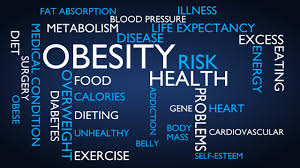Health anxiety can feel like a relentless storm, constantly brewing in the background of our lives. For those who suffer from it, every headache or cough can trigger a whirlwind of worry. This blog post aims to help health-conscious individuals, mental wellness seekers, and anxiety sufferers understand and manage health anxiety effectively. We will explore coping strategies, practical tips, and valuable insights to help you find calm amidst the storm.

Understanding Health Anxiety
Health anxiety, often characterised by an intense preoccupation with ones health and a heightened fear of illness, can significantly interfere with daily life. It can manifest in various ways, including excessive research about symptoms, frequent doctor visits, or avoidance of certain situations perceived to be risky. Understanding the underlying triggers—whether they stem from past health experiences, family history, or societal influences—is critical in addressing health anxiety. Recognising that such feelings are common among many individuals can help reduce the sense of isolation, paving the way for empathy and self-compassion. As we move forward, we will delve into effective strategies and tools to manage and mitigate the effects of health anxiety, empowering individuals to reclaim their peace of mind.
What is Health Anxiety?
Health anxiety, also known as illness anxiety disorder, is characterized by excessive worry about having a serious illness. It is more than just being cautious about one health it is a persistent fear that often lacks a rational basis. This anxiety can lead to frequent doctor visits and constant health checking.
Symptoms of Health Anxiety
Health anxiety manifests in various ways. Common symptoms include compulsively researching illnesses, frequent body scanning for symptoms, and persistent doubts about medical results. These behaviors not only affect mental well-being but also disrupt daily life activities.
Causes of Health Anxiety
Several factors may contribute to the development of health anxiety. A family history of anxiety disorders, personal health scares, or exposure to serious illnesses can increase vulnerability. Understanding these causes can provide a clearer picture and pave the way for effective management.
The Impact of Health Anxiety
Health anxiety can have far-reaching effects on an individual life, impacting both mental and physical well-being. Those who suffer from it may encounter heightened stress levels, leading to a cycle of worry that can perpetuate their anxiety. This stress can manifest physically, resulting in tension, headaches, or fatigue, further fueling the fear of underlying health issues. Additionally, relationships may suffer, as individuals with health anxiety may withdraw from social interactions or rely heavily on loved ones for reassurance. It is essential to recognise that while health anxiety can be debilitating, understanding its effects can empower individuals to seek help and adopt healthier coping mechanisms. In the next sections, we will examine various effective strategies for managing health anxiety and fostering a healthier mindset.
Mental and Emotional Effects
Health anxiety takes a significant toll on mental and emotional well-being. Constant worry leads to heightened stress levels, irritability, and even depression. It is crucial to acknowledge these effects and seek appropriate support to maintain mental balance.
Physical Consequences
The physical effects of health anxiety are not to be underestimated. Chronic stress can lead to headaches, muscle tension, and digestive issues. Ironically, these physical symptoms can exacerbate anxiety, creating a vicious cycle that becomes difficult to break.
Social and Professional Implications
Health anxiety can strain relationships and affect professional life. Avoidance behaviors and preoccupation with health concerns can lead to social isolation. Additionally, anxiety may impair work performance, leading to missed opportunities and career setbacks.
The Role of Medical Professionals
Medical professionals play a crucial role in the management of health anxiety. They provide not only medical assessments to rule out legitimate health concerns but also guidance on navigating anxiety-related issues. Establishing a good relationship with a primary care physician can help patients feel more secure in discussing their health fears and receiving appropriate referrals for mental health support. Regular check-ups can alleviate fears and provide reassurance, fostering a sense of control over ones health. Furthermore, healthcare providers can offer educational resources and strategies tailored to individual needs, empowering patients with the knowledge and tools necessary for effective anxiety management. Collaboration between the patient and their healthcare team is essential in creating a comprehensive plan that addresses both physical and mental health concerns.
Communicating with Your Doctor
Effective communication with your doctor is essential when managing health anxiety. Be open about your concerns and ask questions to gain clarity. Building a trusting relationship with your healthcare provider can alleviate anxiety and ensure proper care.
When to Seek Professional Help
If health anxiety significantly impacts your daily life, it may be time to seek professional help. Cognitive Behavioral Therapy (CBT) and medication are effective treatments for health anxiety. Consulting a mental health professional can provide the support needed to manage your symptoms.
Understanding Medical Results
Interpreting medical results accurately is crucial in managing health anxiety. Trust your doctors expertise and avoid jumping to conclusions based on incomplete information. Seeking clarification from healthcare providers can prevent unnecessary worry.
Conclusion
In conclusion, managing health anxiety requires a multifaceted approach involving self-care, professional support, and community engagement. By implementing strategies such as mindfulness practices, effective communication with healthcare providers, and leveraging technology, individuals can take proactive steps towards a healthier mindset. Creating a supportive environment, both through educating loved ones and setting personal boundaries, plays a crucial role in navigating the challenges of health anxiety. As we continue to understand and address this condition, fostering awareness and encouraging resilience can lead to significant improvements in mental well-being. Remember, it is a journey, and each step taken, no matter how small, contributes to building a more confident and empowered self. Health anxiety can be a daunting challenge, but with the right strategies and support, it is manageable. By understanding the nature of health anxiety, adopting effective coping mechanisms, and seeking professional help when needed, you can regain control over your life. Remember, you are not alone in this journey. Countless others share your experience, and together, we can create a community of support and resilience. Take the first step towards managing your health anxiety today and discover the peace of mind you deserve.















Comments
Leave a comment